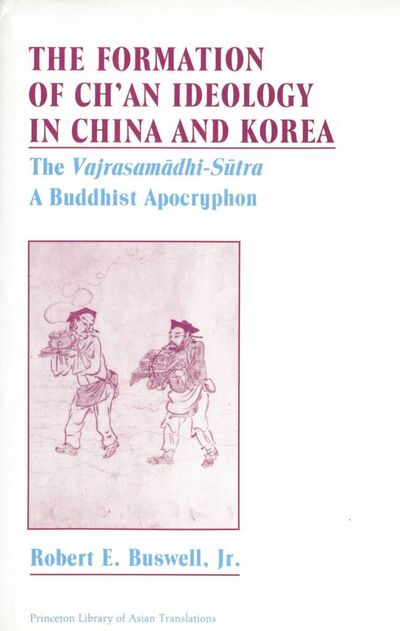The Formation of Ch'an Ideology in China and Korea
< Books
| Line 27: | Line 27: | ||
**{{i|Amalavijñāna and the Innate Purity of Mind|92}} | **{{i|Amalavijñāna and the Innate Purity of Mind|92}} | ||
**{{i|The Meaning of "Vajrasamādhi": The Practical Implications | **{{i|The Meaning of "Vajrasamādhi": The Practical Implications | ||
| − | of Innate Enlightenment|104}} | + | of<br>Innate Enlightenment|104}} |
**{{i|The ''Vajrasamādhi'''s Message to Silla Buddhists|115}} | **{{i|The ''Vajrasamādhi'''s Message to Silla Buddhists|115}} | ||
Revision as of 11:27, 22 April 2020
This book contains an extensive study and a translation of the Vajrasamādhi Sūtra and makes a convincing argument to rethink the "national lines of argument" that had previously dominated discussions of East Asian Buddhist traditions. Buswell shows how Chan developed in multiple communities; it was not a Chinese phenomenon that was then exported to Korea and Japan. He also shows how the scripture is firmly in the Chinese Yogācāra tradition of Paramārtha, containing an extensive discussion of "immaculate consciousness" (amalavijñāna), the ninth consciousness which unites saṃsāra and nirvāṇa in a "single taste." Buswell draws on Japanese scholarship, such as that by Mozuno Kōgen, who first concluded that the sūtra was an apocryphon.
| Citation | Buswell, Robert E., Jr. The Formation of Ch'an Ideology in China and Korea: The Vajrasamādhi-Sūtra, A Buddhist Apocryphon. Princeton Library of Asian Translations. Princeton, NJ: Princeton University Press, 1989. |
|---|---|

